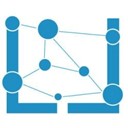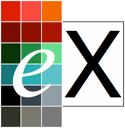Uncovering the Best skiiiD Alternatives for Firmware Development
skiiiD is a robust hardware firmware IDE, particularly popular for Arduino Mega and Uno development. It boasts an impressive library of over 70 components with auto-complete features and integrated datasheet information. However, developers often seek alternatives for various reasons, including broader platform support, specific feature sets, or different development philosophies. This guide explores some of the top skiiiD alternatives that offer diverse solutions for embedded systems and IoT development.
Top skiiiD Alternatives
Whether you're looking for open-source flexibility, specific integrations, or a more streamlined workflow, these alternatives to skiiiD offer compelling options for your firmware development needs.

Arduino IDE
Arduino IDE is an open-source electronics prototyping platform known for its flexible and easy-to-use hardware and software. It's a foundational tool for artists, designers, and hobbyists. As a skiiiD alternative, it offers broad platform compatibility (Mac, Windows, Linux, Web) and a strong community-driven library manager, making it highly accessible for a wide range of projects.

PlatformIO
PlatformIO is an open-source ecosystem designed for IoT development, featuring a cross-platform IDE and unified debugger. It offers extensive compatibility with popular IDEs like Visual Studio Code, CLion, and Eclipse, and includes features like code completion and continuous integration. As a skiiiD alternative, PlatformIO provides a more comprehensive and extensible environment for complex IoT projects across various platforms (Mac, Windows, Linux).

LabsLand
LabsLand is a commercial web-based platform that provides access to real educational laboratories over the Internet. While not a direct IDE like skiiiD, it serves as a valuable tool for remote learning and practical application in educational settings, offering features like remote desktop and monitoring for hands-on experience with hardware.

UECIDE
UECIDE (Universal Embedded Computing IDE) is an open-source IDE based on the Arduino IDE, aiming to support a wide range of embedded boards. It offers features like binary file conversion and JSON Pretty Print, making it a versatile skiiiD alternative for developers working with diverse hardware platforms (Mac, Windows, Linux) and seeking an extensible IDE.

B4R
B4R is a free development tool specifically for native Arduino solutions, maintaining the simple yet powerful development concepts of other B4X tools. It's an excellent skiiiD alternative for Windows users looking for a straightforward and portable IDE tailored for Arduino programming.

embedXcode
embedXcode is a freemium template for Xcode, simplifying development for popular embedded computing boards. It's a strong skiiiD alternative for Mac users who prefer working within the Xcode environment, providing an integrated IDE solution for their embedded projects.

Visual Micro
Visual Micro is a free Arduino development plugin for Microsoft Visual Studio, offering a fully compatible alternative to the Arduino IDE. It provides a debugger and integrates seamlessly into the familiar Visual Studio environment, making it an excellent skiiiD alternative for Windows developers who prefer this powerful IDE.

Zerynth
Zerynth is a freemium set of software tools for designing embedded applications and IoT connected devices using 32-bit microcontrollers and various cloud infrastructures. It features an IDE that supports Python development, offering a powerful and versatile skiiiD alternative for developers across Mac, Windows, Linux, Android, and iPhone platforms who prefer Python for their embedded projects.

PROGRAMINO
PROGRAMINO IDE for Arduino is a commercial and user-friendly alternative IDE for Arduino, Genuino, or similar boards. It includes advanced features like code autocomplete and custom syntax highlighting, making it a comfortable skiiiD alternative for Windows users seeking a feature-rich IDE with debugger and developer tools.
Ultimately, the best skiiiD alternative for you will depend on your specific project requirements, preferred operating system, and desired features. We encourage you to explore these options to find the perfect fit for your embedded development journey.